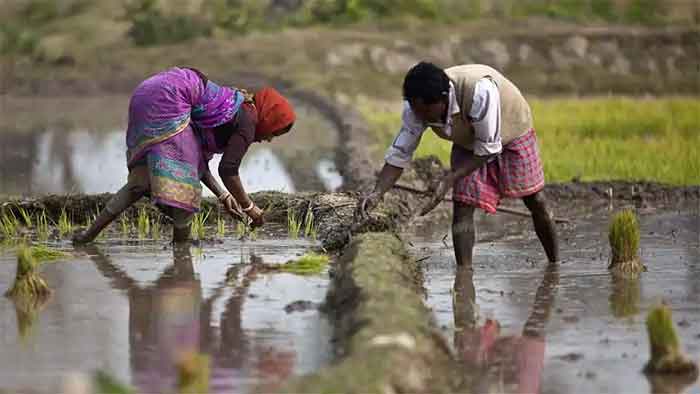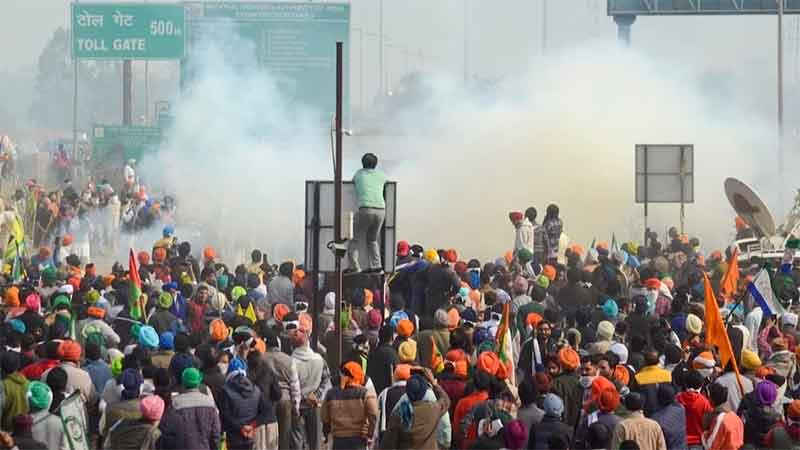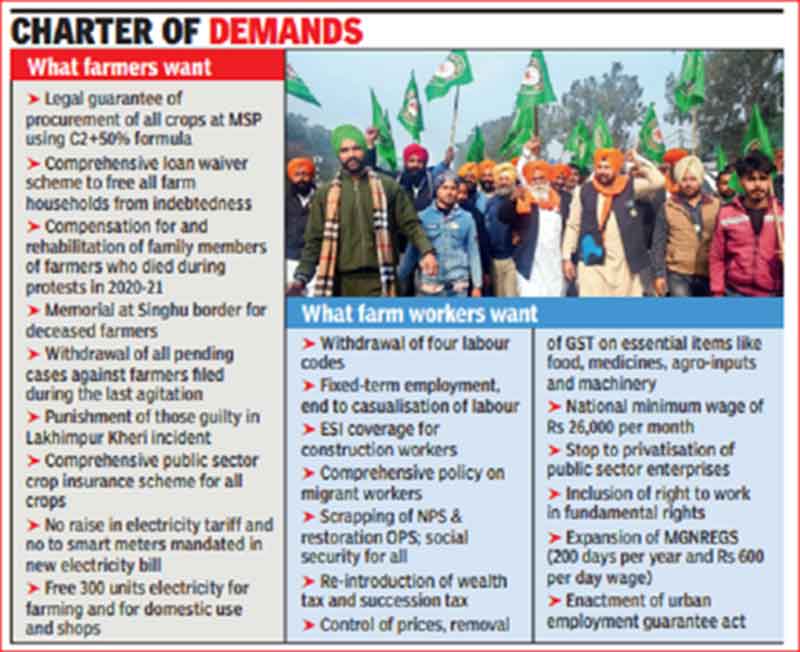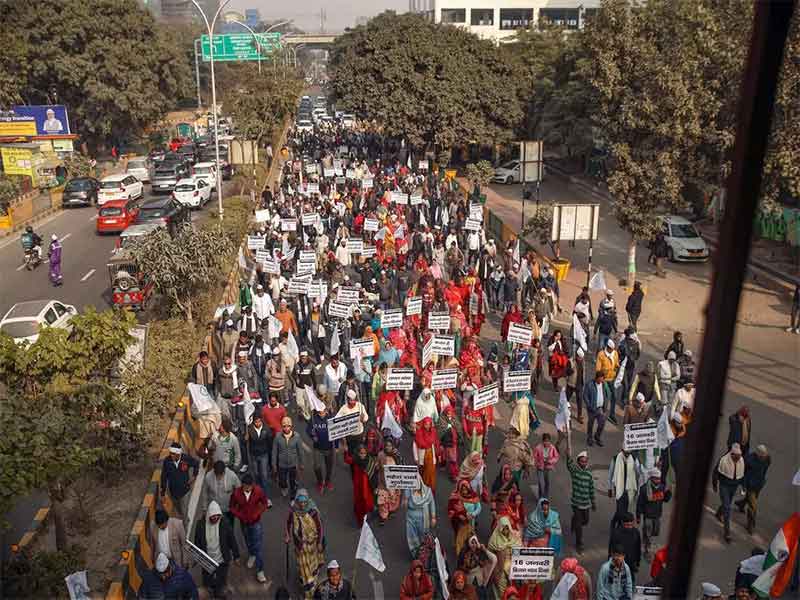
Governments in many countries grapple with the challenge of retaining the support of farmers who are considered important in electoral politics. At the same time several of these governments work under the impact of powerful business interests. From the narrow point of view of these governments the skill is in somehow managing to keep both business interests and farmers happy. This is difficult, so what they try to do is to keep a smaller number of influential farmers on their side. These are generally the bigger farmers and their leaders.
In the process some sort of compromise is worked out in which the big farmers and big business are major beneficiaries but medium and small farmers also get some relief from time to time, and ruling regime gets a big political support base. Outwardly things look stable, but in the process of achieving this often the considerations of sustainability and environment protection are sacrificed.
The shorter term higher benefits are sought to be secured by a more extractive system which tries to get more and more out of nature while pushing aside inconvenient questions of soil harm, water depletion and environment destruction. Many periods of higher farm productivity and higher cash receipts are those in which heavy damage to sustainability and environment is caused. In addition the interests of the least influential and poorest section of landless rural households are also sacrificed.
This compromise and the attempt to create a consensus on an unsustainable and extractive system is highly unstable as the reality of problems caused by destruction of environment, depletion of soil fertility and water resources catches up, creating serious problems.
Rich countries have often tried to find a way out by pushing the burden on poorer countries using unfair trade practices, patent laws , seed and input control, technological and other means of domination, promoting multinational companies and imposing agreements which indulge in many dirty tricks to achieve this.
On the other hand rural regimes of poorer countries have lesser options when the crisis catches up with their highly extractive farming systems. Still skillful politicians bide their time till next elections, using some relief and populist measures as well.
Problems become more difficult when big business interests become more greedy and try to obtain too much in a short time, or politicians come so much under their influence that they fail to reconcile interests of farmers with those of business.
What has happened in recent times is that the unsustainably created by the highly extractive systems has increased, and at the same time the greed of big business and their ability to influence government more has also increased. This is leading to more discontent and conflict.
Ultimately it remains to be seen whether solutions will be sought within the existing distortions of non-sustainability and many-sided ecological ruin on the one hand and neglect of the poorest and most vulnerable sections on the other hand, or whether solutions outside the current paradigm of development thinking will also be considered.
In the prevailing condition often the most important questions are not even considered, are not even on the agenda.
For example if high-water guzzling sugarcane monocultures grown with large quantities of chemical fertilizers and pesticides in a cluster of villages are tied to providing the raw material for highly polluting sugar factories and liquor distilleries, the question of a different mixed cropping, staple food crop growing alternative based on agro-ecology, providing more employment and food security to the landless as well, is not even considered and the struggle issues also remain confined generally to getting better price for sugarcane or ensuring early payment of pending dues.
Politicians can win elections by clearing pending dues in election year, or including this as a main election promise. Hence when struggles of farmers take place, often the highly unsustainable, self-destructive paradigm of development is not even questioned.
Sometimes ‘solutions’ are found which leave untouched the basic unsustainable situation or even worsen it, as long as big business interests, sections of influential farmers and government can find a compromise acceptable to them. But such compromises only worsen the basic crisis in a few years time.
If the concentration is just on ensuring a high and definite price within a system that harms sustainability badly, this will be an incentive for accentuating the distorted system, an incentive for deepening the extraction.
As on the one hand big business interests dominate more and on the other hand there is populism, the most basic issues are not even considered in a comprehensive and integrated way.
It is therefore very important to go on re-emphasizing the most basic issues, such as those of creating more sustainable, ecologically protective and resilient systems and protecting the interests of the weakest sections, in the hope that this can contribute in some measure to the emergence of more just and protective solutions.
This was always important, but in times of climate change this is more important than before. The challenge before us a very big one, but it is also a challenge which is changing fast, throwing up not just new problems but also opportunities. The changing situation must be well understood, the emerging new opportunities should be grasped eagerly. Only time will tell whether we are equal to the task; the situation realistically is dismal but we live on hope.
Bharat Dogra is a journalist and author. His recent books include Planet in Peril and Protecting Earth for Children.
IF YOU LIKED THE ARTICLE SUPPORT PEOPLE’S JOURNALISM












































